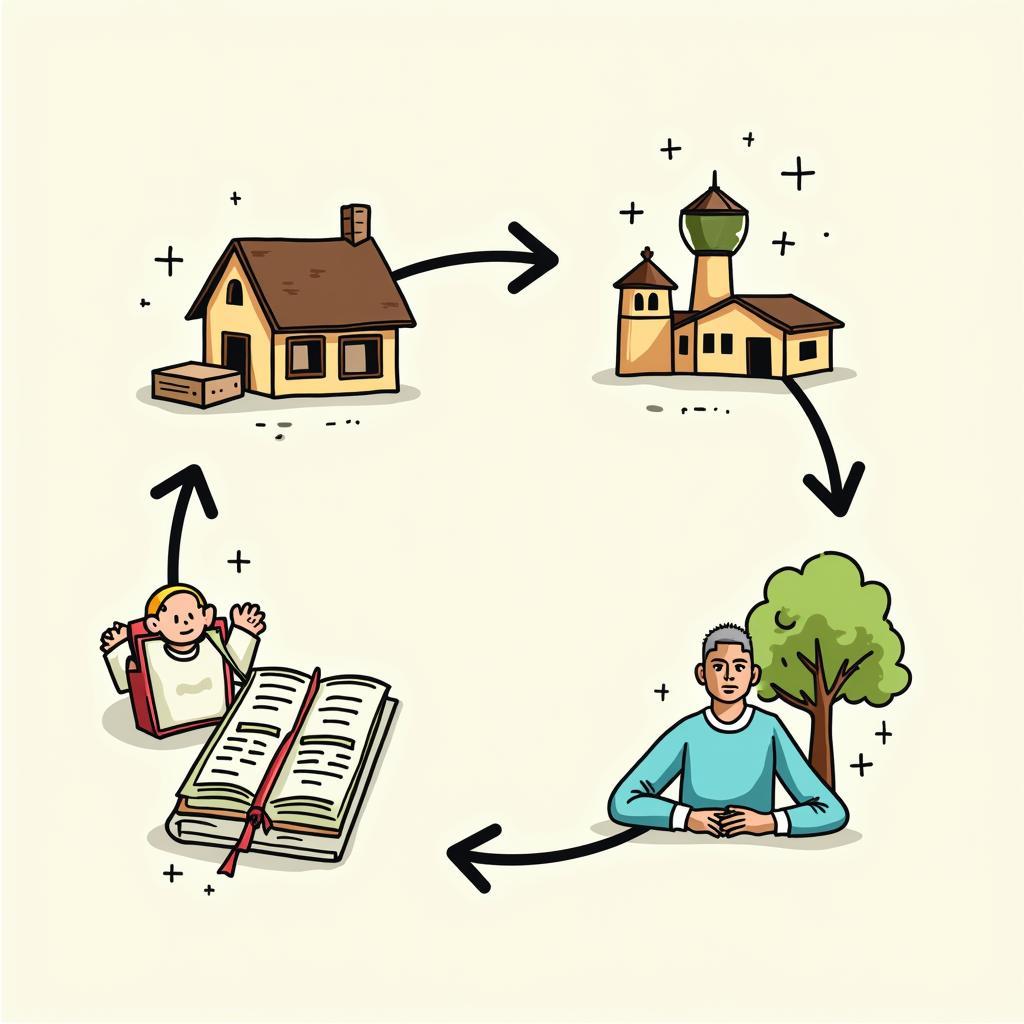An illiterate society doesn’t just lack reading and writing skills; it grapples with a profound and pervasive disadvantage that echoes through every facet of human life. The Human Cost Of An Illiterate Society is staggering, impacting individuals, communities, and entire nations. Let’s delve into the multifaceted consequences of illiteracy and explore why it’s a critical issue demanding global attention.
The Vicious Cycle of Poverty and Illiteracy
 The Vicious Cycle of Poverty and Illiteracy
The Vicious Cycle of Poverty and Illiteracy
Illiteracy and poverty are often locked in a vicious cycle. Individuals lacking basic literacy skills face limited employment opportunities, trapping them in low-paying jobs or unemployment. This economic hardship perpetuates the cycle, as families struggling to make ends meet often lack the resources to invest in education for their children.
The Health Implications of an Illiterate Society
 The Impact of Illiteracy on Health Outcomes
The Impact of Illiteracy on Health Outcomes
The human cost of an illiterate society extends beyond economic disadvantages, impacting health outcomes significantly. Individuals with low literacy levels often struggle to understand basic health information, such as medication instructions or disease prevention strategies. This can lead to improper medication use, delayed diagnoses, and higher susceptibility to preventable illnesses.
Limited Civic Engagement and Social Exclusion
How can citizens actively participate in a democratic society if they cannot comprehend the issues at hand? Illiteracy hinders civic engagement, limiting individuals’ ability to vote informedly, engage in public discourse, and advocate for their rights. This lack of participation can lead to social exclusion, marginalizing entire communities and hindering social progress.
The Importance of Education in Breaking the Cycle
Education is the cornerstone of a thriving society. By investing in quality education for all, we empower individuals with the knowledge and skills to break free from the cycle of poverty and illiteracy. Education opens doors to better job opportunities, improved health outcomes, and active citizenship.
“Education is the most powerful weapon which you can use to change the world.” – Nelson Mandela
Empowering Future Generations Through Literacy
 Children Learning to Read in a Classroom Setting
Children Learning to Read in a Classroom Setting
The fight against illiteracy is a fight for a brighter future. By promoting literacy programs, supporting early childhood education, and creating accessible learning opportunities, we can empower future generations to reach their full potential and contribute to a more just and equitable world.
Conclusion
The human cost of an illiterate society is immeasurable. From economic hardship and health disparities to limited civic engagement and social exclusion, the consequences ripple through all aspects of human life. Addressing illiteracy is not just about teaching people to read and write; it’s about unlocking human potential, fostering social progress, and building a more inclusive and prosperous future for all.
 using WordPress and
using WordPress and